The Legacy of Lead: Why the Toxic Nightmare is Here to Stay
Lead is toxic, everyone knows that.
lead paint + lead crystal + cheap lead jewelry + lead batteries + lead toys from China = lead poisoning.
For years, people have practiced an avoidance strategy thinking that if they just kept those things out of the house everything would be fine. Sadly, the recent crisis in Flint, Michigan has proven otherwise.
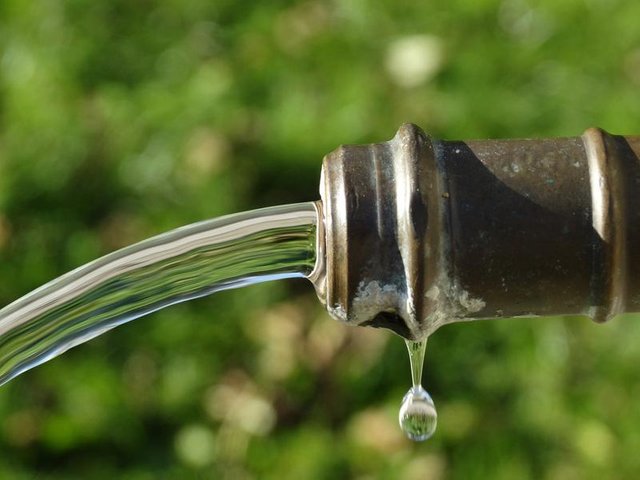
What is Lead?
Lead is a naturally occurring metal found in the ground. It is usually combined with other elements (e.g., carbon, chlorine, hydrogen) to form compounds. Common lead compounds include tetraethyl lead, lead oxide, lead arsenate, lead nitrate, and lead carbonate. Lead is also mixed with other metals to form alloys. Popular lead-based alloys include solder (lead + tin) and type metal (lead + tin + antimony).
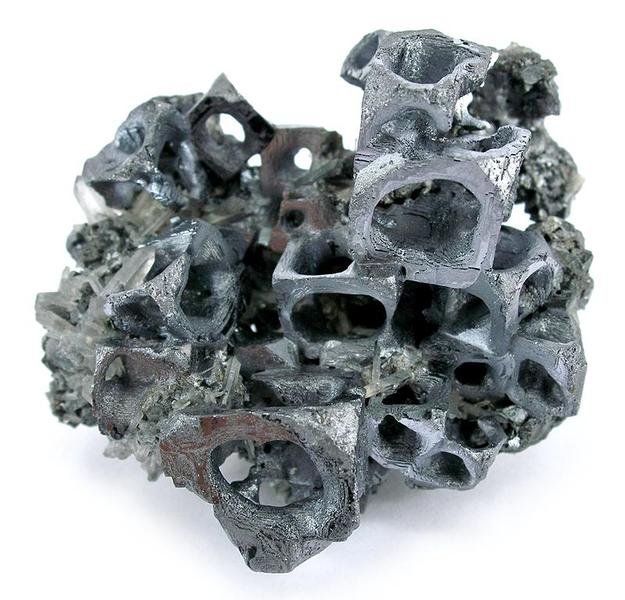
Where is it found?
Lead has been used for thousands of years. A dense, soft, ductile, and malleable metal, lead was popular choice for a variety of products including, but not limited to, pipes, wire, paint, roofing, gasoline, sound-proofing, pesticides, plastics, and even food. It was lead's unique resistance to corrosion, however, that made it the primary choice for plumbing systems for many, many years.

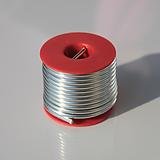
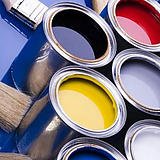
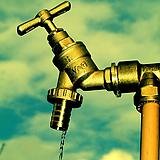
FYI: there is no lead in lead pencils.
What does it do to our bodies?
Lead enters our bodies after being inhaled or ingested. Inhalation is less common and typically limited to those engaged in lead-related occupations or living near smelter facilities. For the vast majority of the population, exposure occurs by eating or drinking something that contains lead. There is no safe level of lead in the blood.
.png)
When lead enters our body, it wreaks havoc.
Bones:
Lead, a metal, mimics other important metals like iron, calcium, and zinc, and interferes with protein functions. Copying calcium, lead settles in our teeth and bones for good-- its levels constantly increasing due to repeated exposure.
Soft Tissue:
Once in the bloodstream, lead travels to the kidneys, liver, brain, and other soft tissue. While all organs are susceptible to serious damage, lead's effects on the brain are particularly devastating. By increasing the permeability of the blood-brain barrier and interfering with neurotransmitters, Lead can cause irreversible damage to the central nervous system. In children, this disrupts neurological development and can lead to learning and behavioral problems.
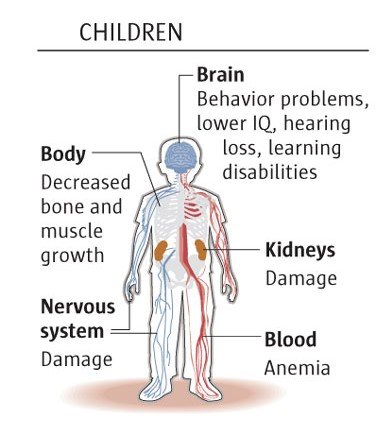
For additional information on the physiological effects of lead, I recommend reading the Agency for Toxic Substances and Disease's report available here.
How does it get into our water?
Water contamination is often associated with midnight dumping: rather than disposing of toxic waste properly, employees are instructed secretly dump the waste somewhere. And while midnight dumping does in fact occur, lead in drinking water is often the result of leaching due to corrosion.
As mentioned, lead-based pipes, solder, and fixtures were commonly used in plumbing systems across the United States. In 1986, the Safe Drinking Water Act was amended to include a ban on the use of any Lead-based pipes, fittings, fixtures, solder, or flux to build or repair public water systems and anywhere else that had water available for human consumption. The ban did not, however, require the removal of any existing underground infrastructure using lead-based materials.
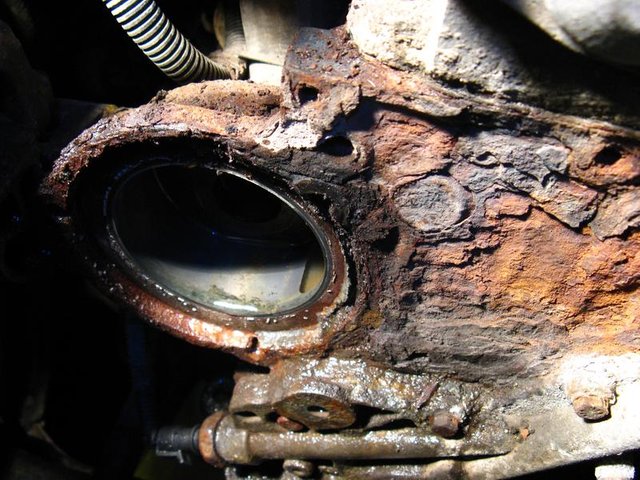
Where there is water and metal there is bound to be corrosion.
Even though lead has anti-corrosive properties, corrosion is a natural process caused by chemical reactions that all metals are susceptible to. According to the Water Research Center:
In water that is soft, corrosion occurs because of the lack of dissolved cations, such as calcium and magnesium in the water. Water with high levels of sodium, chloride, or other ions will increase the conductivity of the water and promote corrosion.
Thus, to combat the risk of lead leaching from corroding pipes, the Environmental Protection Agency passed the Lead and Copper Rule in 1991. The Rule requires water providers to implement specific techniques to combat water corrosivity. Unlike many other contaminants, the EPA has a zero tolerance policy when it comes to lead.

In Flint, the water district failed to engage in any corrossion control after switching to a source that contained highly corrosive water. Not only did lead leach out at a dramatic rate, the corrosion also led to an overgrowth of bacteria.
What can you do to be proactive?
If you can, install filters in your home to remove metals and organics. You should also contact your provider and ask them what they do to combat corrossion and whether they use any disinfection products that might impact its efficacy.
Finally, as with any water related concerm, you should always review your area's Consumer Confidence Report. Each year, your water supplier is required distribute the report to residents. You can access it here.
Additonal Information
My work as an attorney is focused primarily on environmental pollution. Right now, water contamination is an issue that affects everyone.
My plan is to focus on contaminants that have been the subject of recent investigations. If interested, check out my lastest post discussing PFOA.
note: this post is for informational purposes only and is not intended to be legal advice or create an attorney-client relationship.
Great post! This is an issue that needs to be tackled. Midnight dumping is common across the world. Companies everyone try to shed their responsibilities by finding ways to cut costs and turn a blind eye. US for all the amazing advancement in technology is nowhere close to protecting their own citizens against the greedy corporations. It's the same case everywhere else in the world.
100% correct! All anything ever comes down to is money. Watching lives destroyed over greed is absolutely infuriating, so I fight it the best way I can.
Nice! I live in Shanghai now. Lead poisoning is a constant issue and a worry of mine because i have a 3 year old daughter. I have to bring her for blood test every 6 months. I did some research on my own on how to remove lead from the bost naturally. I heard eating coriander is great for lead removal from the body. And of course, water filter is a must
Yes, Shanghai's lead problem is severe. I am glad that you are aware, though, and taking steps to protect the health of your family!
Always like your pieces. Details most don't come up with based on professional perspective I am sure
Thank you, that means a lot! Sometimes it's hard for me not to go overboard in terms of details.
Great post! Especially after watching the Flint situation for a long time now.
Interesting factoid, my graduate Environmental Economics Professor was the lawyer who fought to get lead out of gasoline for the EPA. Alan Loeb I believe was his name, it's been a while :) Lead was everywhere from the gasoline from what he was telling us and had it continued, the levels would have been extremely detrimental.
EDIT: Yeah that was his name. He wrote this which is an interesting read for anyone interested regarding pollution and corporate responsibility: http://www.thebhc.org/sites/default/files/beh/BEHprint/v028n2/p0095-p0108.pdf
Great to see postings on environmental issues. I minored in Environmental Studies in college. Glad you can be a resource in this area here on Steemit. Following you now :)
This is laid out and thorough, thanks for the great read. The additional resources are great
You ever notice that lead is used because it's plentiful cheap, and you may call something that's cheap a deal, and that lead is just deal backwards. Why is it written backwards? because it's bad for you and it's not a good deal, it's the reverse of a good deal, it's LEAD!
how high do you have to be to even write this post?
it's good though. =p
Good research on lead. It is some tough stuff and sadly your right if it can get in the water where else can it still be?
Thank you! Luckily, the US has cracked down on the use of lead-based products. Legacy use is still an issue, though.
soldering with lead is so much easier and faster. the no-lead solders need different temperature and are harder to get right.
I am not a welder, but I can appreciate that lead might have certain characteristcs which make it desirable. Unfortunately, it is toxic so, in my opinion, the risks outweigh the benefits.